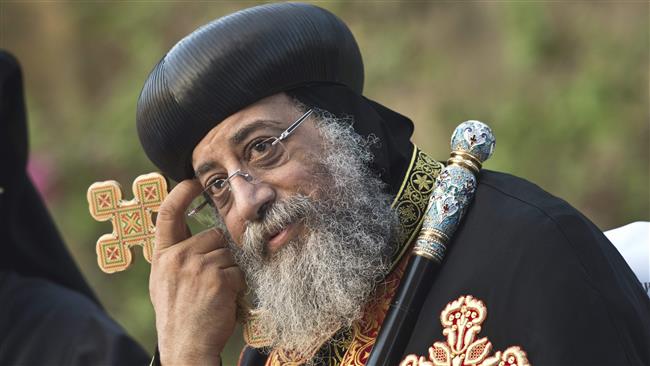
RNA - US President Donald Trump's decision "did not take into account the feelings of millions of Arab people," Egypt's Coptic Church said in a statement on Saturday.
"The Egyptian Coptic Orthodox Church declines to receive American Vice President Mike Pence," the statement added.
The church said it would pray for "wisdom and to address all issues that impact peace for the people of the Middle East."
The announcement comes a day after the head of Egypt's al-Azhar, the country’s top Muslim authority, Ahmed al-Tayeb, also refused to meet Pence.
Egyptian Coptic Christians are considered the largest religious minority in the region.
Meanwhile, Majdi Khaldi, a diplomatic adviser to the Palestinian president, confirmed Saturday that Mahmoud Abbas won't meet Pence "because the US has crossed red lines" on Jerusalem al-Quds.
On Wednesday, Trump announced that he formally recognized Jerusalem al-Quds as Israel’s “capital” and ordered the start of a process for moving the American embassy from Tel Aviv to the city.
The declaration sent shock waves throughout the Muslim world, and even prompted warnings from Washington’s allies in the West that it would bring more chaos to the region.
On Thursday, Palestinian officials said they would not meet with Pence during his visit to Israel later this month to protest against Trump’s decision, saying the US official was unwelcome in Palestine.
Palestinian leaders declared Friday as the “day of rage” against Israel and the US.
Clashes broke out between Israeli troops and Palestinian protesters after Friday prayers in Jerusalem al-Qud's Old City, al-Khalil -- also known as Hebron-- , Bethlehem and Nablus in the occupied West Bank as well as the besieged Gaza Strip. At least two Palestinians were killed and about 770 others were injured during the unrest on Friday.
Also on Saturday, twenty Palestinians were injured during continued clashes with Israeli forces in Bethlehem after the forces began targeting the crowd with rubber-coated bullets and fired tear gas to disperse protesters.
Jerusalem al-Quds remains at the core of the Israeli-Palestinian conflict, with Palestinians hoping that the eastern part of the city would eventually serve as the capital of a future independent Palestinian state.
847/940